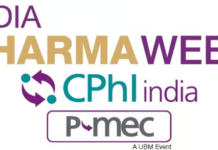New Delhi, October 01, 2016: (UNI) Researchers have identified a fungus that compromises the immune system of mosquitoes, making them more susceptible to infection with the parasite that causes malaria.
Because environmental microorganisms can vary greatly from region to region, the researchers say the findings may help explain variations in the prevalence of malaria in different geographic areas.
Mosquitoes, like humans, are continuously exposed to a variety of microbes in their environment, and these bacteria and fungi can influence the health of mosquitoes in many ways.
Malaria researchers have in the past identified microbes that block the Anopheles mosquito from being infected by the parasite that causes malaria, but this is the first time they have found a microorganism that instead appears to make the mosquito more likely to become infected with – and then spread – malaria.
The findings are published online September 28 in the journal Scientific Reports.
“This very common, naturally occurring fungus may have a significant impact on malaria transmission: It doesn’t kill the mosquitoes, it doesn’t make them sick, it just makes them more likely to become infected and thereby to spread the disease,” says the study’s leader George Dimopoulos, a professor in the Department of Molecular Microbiology and Immunology at the Bloomberg School and a deputy director of its Johns Hopkins Malaria Research Institute.
“While this fungus is unlikely to be helpful as part of a malaria control strategy, our finding significantly advances our knowledge of the different factors that influence the transmission of malaria.
” Malaria is caused when Anopheles mosquitoes are infected with the Plasmodium parasite and go on to bite and infect healthy humans.
Mosquitoes become infected when they bite and feed on humans who are infected with the Plasmodium parasite.
According to the World Health Organisation, there were roughly 214 million malaria cases and an estimated 438,000 malaria deaths around the world in 2015.
Sub-Saharan Africa continues to carry a disproportionately high share of the global malaria burden.
In 2015, the region was home to 89 percent of malaria cases and 91 per cent of malaria deaths.
Scientists are still working to find an effective vaccine against malaria.
Other strategies have focused on preventing mosquito bites that cause malaria infections, spraying insecticides to control the quantity of malaria-carrying mosquitoes and developing ways to genetically modify mosquitoes to make them immune from the malaria parasite.
Dimopoulos says the Penicillium chrysogenum fungus, his team studied, worsen infections, but it can still help researchers in their fight against malaria.
There are several bacteria that researchers have identified that actually block mosquitoes from becoming infected with the parasite that causes malaria.
“We have questions we hope this finding will help us to answer including why do we have increased transmission of malaria in some areas and not others when the presence of mosquitoes is the same,” he says.
“This gives us another piece of the complicated malaria puzzle.
” UNI YSG JW RK1014
United News of India























